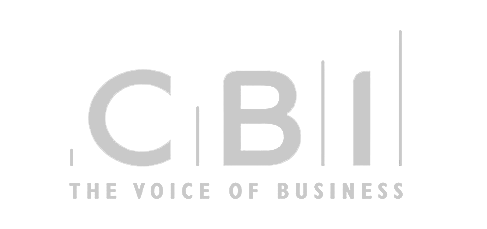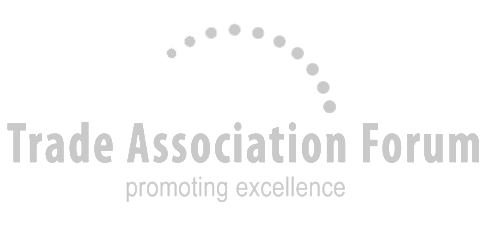In recent months there has been a sustained flow of information in the media around the new IR35 rules and in particular the use by employment businesses (‘agencies’) of umbrella companies. The information has largely been negative, and it has been used to underpin calls for new regulation, yet the picture painted of endemic unsuitable activity is not necessarily correct. The central claim is that umbrella companies act unlawfully and that agencies are complicit in that activity, but is this right, and is new regulation the answer?
With the above in mind the Association of Recruitment Consultancies (ARC) asked government some questions and their responses are set out below with additional comments and a conclusion from ARC.
1. Does the creation by an agency of an umbrella preferred supplier list (PSL) of independent umbrella providers for the purpose of employing referred agency workers breach either the Employment Agencies Act 1973, or the Conduct Regulations?
Neither the 1973 Act nor the Conduct Regulations prevent an employment business from creating a PSL for third party umbrella payroll companies. In cases, where an employment business uses an umbrella company, or companies, to pay temporary work-seekers, they would have to issue a Key Information Document (KID) to each relevant work-seeker. A KID must be issued under regulation 13A of the Conduct Regulations to work-seekers registering for work on or after 6 April 2020. A KID must contain a number of pay related facts. Further guidance on issuing a KID is available on Gov.UK – Providing a ‘Key information document’ for agency workers: guidance for employment businesses – GOV.UK (www.gov.uk)
ARC comment. It is not unlawful to create a PSL. Every employment business should issue a KID document to every temporary work candidate.
2. Is the position different if there is a connection between the umbrella and employment business, and what does it mean?
No, the position under the 1973 Act remains the same. However, in cases where an umbrella payroll company model includes making deductions from the money that is passed to them by an employment business before making a payment to a work-seeker, there are other regulations that need to be complied with. A KID document will, where necessary, need to be issued in accordance with regulation 13A of the Conduct Regulations.
In addition, the employment business would need to ensure compliance with regulation 13 of the Conduct Regulations in setting out details of fees that that a work-seeker could be charged for non-work-finding services by the employment business or any other person.
They would also need to comply with regulation 5 of the Conduct Regulations and not make the provision to a work-seeker of work-finding services conditional upon the work-seeker (a) using other services for which the Act does not prohibit the charging of a fee, or (b) hiring or purchasing goods, whether by the employment business or by any person with whom the employment business is connected.
The meaning of “connected” is set out in regulation 3 of the Conduct Regulations and includes spouse, child, an employee, a partner, or same directors.
ARC comment. It is not unlawful for an employment business to have an arrangement with an umbrella company or to refer candidates to an umbrella company. The key point is whether the umbrella company is ‘connected’ (as strictly defined) with the employment business which is usually not the case. It is only unlawful if the services are made conditional on using a specified umbrella with which the employment business is connected.
3. Is it unlawful for an employment business to refer a work-seeker to an umbrella company that is intended to be the employer of the work-seeker?
It is not contrary to the 1973 Act or the Conduct Regulations.
ARC comment. This further confirms that referrals are not unlawful.
4. Are there any other steps that BEIS would recommend, or which an employment business is required to take in providing details of an umbrella preferred supplier list to a work seeker?
See answer to question 1 and 2 in relation to compliance with regulation 13A of the Conduct Regulations and the issue of KIDs. This obligation came into force on 6 April 2020 and employment businesses need to issue KIDs to all new work-seekers registering for work on or after this date.
ARC comment. There are additional steps outside of BEIS recommendations that employment businesses can take to minimise risk of complaint when using a PSL, for example by providing full explanations to candidates.
5. Since April 2020 employment businesses have been obliged to disclose details of how a worker is to be paid in a Key Information Document. Should the agency obtain information from an umbrella they intend to contract with, and then disclose this in the KID to the worker ? What is the consequence if this is not done?
Employment businesses will need to obtain sufficient information from each relevant umbrella company that they use to engage temporary work-seekers in order to issue a KID to each relevant work-seeker. The information that must appear in a KID is set out in regulation 13A. Any employment business that does not fully comply with this statutory provision may be in breach of regulation 13A.
ARC comment. If an employment business has not provided a KID to the candidate the candidate could as a first step request that one be provided and may at any time register a complaint with EAS.
6. What should an agency do as regards the KID if the worker introduces an umbrella company that the worker is already employed by?
Employment businesses will need to obtain sufficient information from each relevant umbrella company that they use to payroll temporary work-seekers in order to issue a KID to each relevant work-seeker. The information that must appear in a KID is set out in regulation 13A. This will apply where the work-seeker is already registered with an umbrella company and would like to be paid through their existing umbrella company. Any employment business that does not comply with this statutory provision may be in breach of regulation 13A.
ARC comment. Every employment business should issue a KID in accordance with the regulation regardless of whether the candidate is already engaged by an umbrella company. Many umbrella companies have the necessary information ready and available.
7. What is the difference between the rate payable by the agency to an umbrella and the rate payable by the umbrella to the worker? Should the KID given by the agency to the worker make this clear?
Yes. Where an employment business pays a work-seeker through a third-party umbrella company they have to issue a KID to the work-seeker. The information must include, who will normally pay the work-seeker (i.e. the employment business or an umbrella company); the rate or minimum rate of pay the work-seeker would be entitled to for work found by the employment business; the nature of any costs or deductions (either required by law or otherwise); an explanation of the difference between the expected rate, or minimum rate of pay, and the net amount that will be paid. The KID must include a representative pay statement setting out the payments and deductions. There is further detailed guidance on the KID requirements on Gov.UK – https://www.gov.uk/government/publications/providing-a-key-information-document-for-agency-workers-guidance-for-employment-businesses
ARC comment. The rate payable by the employment business to an umbrella company will always differ from, and be greater than, the gross pay rate to the candidate. The KID should explain the payment to the umbrella company, the deductions that the umbrella company will make from that payment, and the consequent gross and net wages pay the candidate can expect to receive.
8. Is it fair to say that in using an umbrella company, and thus avoiding payroll overhead, an agency is indirectly charging a fee to the worker?
Section 6 of the Employment Agencies Act 1973 makes it illegal for an employment agency or employment business to demand or directly or indirectly receive from any person any fee for the purpose of finding, or seeking to find, that person work. Regulation 13 and Regulation 5 of the Conduct Regulations provide certain obligations where an employment business seeks to charge a work-seeker a fee for other goods or services, which could include costs for arranging to pay a work-seeker.
ARC comment. The engagement of a third party to find work for a work-seeker for which the candidate is charged would be unlawful, but this differs from where a third party charges for other services (i.e. non work finding services) and there is no charge by the employment business. Also see reply to question 2.
9. Is it unlawful for an umbrella company that employs agency workers to deduct its overhead costs, which includes employer national insurance contributions and profit elements, from the rate it is paid by the agency?
The Employment Agencies Act 1973 does not at this stage regulate umbrella companies and the practice set out in this question does not breach the 1973 Act or the Conduct Regulations
ARC comment. The suggestion by some pundits, that this activity is unlawful, is incorrect unless the employment contract states otherwise. If an umbrella company fails to provide particulars of employment within a certain time there is a breach of existing employment law. Care should be taken to read the employment contract before agreeing it. In the event of incorrect payment (i.e. contrary to the employment terms agreed) the candidate should take the matter up first with the umbrella employer but may also refer the issue to the employment business and/or EAS for further investigation.
10. If an individual work seeker believes that an employment business is making its work finding service conditional upon the use of an umbrella company, is this something that may be unlawful and should be referred to BEIS?
It is not a breach of the Employment Agencies Act 1973 or Conduct Regulations for an employment business to only arrange to pay its temporary work-seekers through one or more umbrella companies. This is regardless of whether the umbrella company charges any fees to work-seekers. There is no obligation under the Act or Conduct Regulations that requires any employment business to offer an alternative payment (i.e. PAYE) method to work-seekers.
ARC comment. This position is clear as things stand.
11. The word ‘umbrella’ seems to be used in a wide context meaning any business that provides engagement services for a candidate supplied by an employment business, but is that correct?
The Government’s commitment is to extend the remit of EAS (through the Employment Agencies Act 1973) to cover the services provided by umbrella payroll companies. There is “new” guidance on what an umbrella company is and published by HMRC which you may have already seen – I attach a link: https://www.gov.uk/guidance/working-through-an-umbrella-company This guidance also has lines on spotting non-compliant arrangements. Currently, the 1973 Act does not apply to such activity but the Government plans to bring forward such changes in an Employment Bill. EAS will consider each case and activity on a case-by-case basis.
ARC comment. The term ‘umbrella company’ is widely and loosely used. If an organisation is not to be the employer of the candidate it should not be referred to as an umbrella company, but there is confusion around the use of this term which regulation may resolve. Candidates should ensure that they understand exactly who their employer is, and in line with advice from HMRC, should take care to avoid tax avoidance schemes that promise higher pay rates.
12. Is it possible to make a claim for unlawful deduction of wages if an umbrella company makes any deductions from the rate paid by the agency to the umbrella company?
Whilst there might be legislation in the Employment Rights Act in relation to unlawful or unauthorised deductions from a worker pay, these are individual rights and are not enforced by EAS/BEIS. The Employment Agencies Act 1973 does not apply to umbrella companies. In addition, the Act does not deal with matters that relate to “unlawful deductions” from a worker’s wages. The “new” guidance https://www.gov.uk/guidance/working-through-an-umbrella-company contains text on deductions of Employers NIC’s and what people should do about it if they think it is happening (see the “What you get paid” section of the guidance).
ARC comment. The position in relation to application of legislation to umbrella companies is complex. It is a question of fact as to whether unlawful deductions have been made. It is not unlawful to deduct payments that by law are required to be deducted by the employer, or which the employee has agreed can be deducted provided that the deduction does not conflict with laws such as the National Minimum Wage Act.
Conclusion
Given all the above and the government commitment, the question now is what regulations are really needed to address umbrella activities. It should be noted that umbrella companies are regulated in the same way as any other employers in the UK; they must comply with the Employment Rights Act, National Minimum Wage Act, Working Time Regulations and so on, and umbrella companies are also subject to the Agency Workers Regulations. Agencies are regulated under the Employment Agencies Act 1973 (the ‘1973 Act’) pursuant to which the Conduct of Employment Agencies and Employment Businesses Regulations 2003 (‘Conduct Regulations’) were issued.
The fact that some people may not be paid correctly is a much wider issue that extends way beyond the umbrella sector (for example the hospitality sector suffers from a poor reputation in this area). All, including umbrella, employees can currently enforce underpayment and employment breaches through the employment tribunal, the courts and in some cases via HMRC. So if the KID rules are properly complied with, what is the specific problem with umbrella companies? Is it the model or is it a handful of rogue operators?
A good starting point would be to stop regarding umbrellas as payroll providers. On the face of it they are not payrollers, they are employers and this should be understood by all parties. In ARC’s view further analysis is needed to identify the critical problem areas, and what the objective is for any new regulation. Umbrella companies have been around for over 20 years, and they have a role to play.
Stopping the exploitation of agency workers where it is facilitated by current conditions must be top of the list of concerns. However care should be taken not to damage the recruitment supply sector as a whole. More direct enforcement, if there is an effective agency with suitable powers as may be planned by government, could well end this particular saga.
We hope this Q and A provides some clarity. For more information email info@arc-org.net quoting ‘umbrellagate’.



